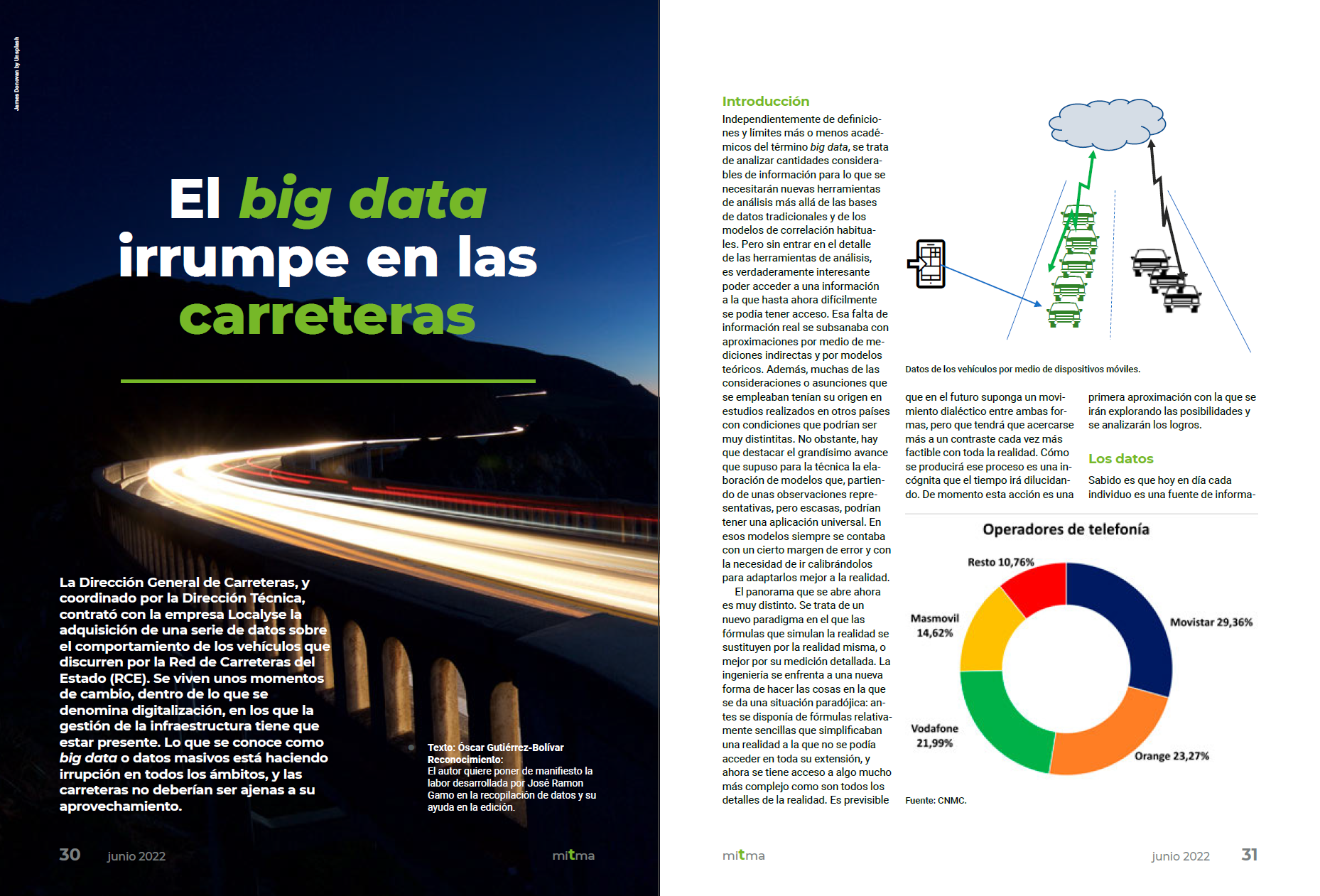Client review: Floating Car Data in Spain
A couple of months ago MITMA, the ministry of transportation and mobility, used ODIQ to understand the coverage, accuracy and added value of Floating Car Data for traffic management on the Spanish road network. Up to now they relied on surveys and on-street counts.
One of the leading traffic engineers at MITMA wrote an in-depth article on their experience with our tools.
‘The design, planning, maintenance, operation and management of roads will be revolutionized by big data.’
Article translated from Spanish by Deepl.com
Key takeaways:
It has been an everlasting challenge to solve the problem of how to create an accurate traffic model. The rise of big data has substantially modified the way of approaching the problem. Thanks to the data supplied by a very large portion of the road users, reality can be accessed without the need for a theoretical model. The “old” way of gathering data was limited to a single road segment for a very limited time. Using Floating Car Data, you can have data on practically all vehicles at any time and location.
Now that accurate information about the actual road situation has become accessible, it would be foolish to continue using approximations. However, there is always resistance to stop using the current methods, out of habit and convenience. That’s why we still see a necessity to use models and on-street counts to predict situations. Floating Car Data can then be used to compare the current situation in comparison to the new one in terms of bottlenecks, speeds and travel times depending on time and day.
‘Welcome to a world where you get a representative view of the traffic situation from behind a screen instead of having to install hardware or use traffic models, often at a lower cost.’
Want to discuss what this means for you? Please reach out to Michiel: michiel@geomobility.eu or book a meeting.

